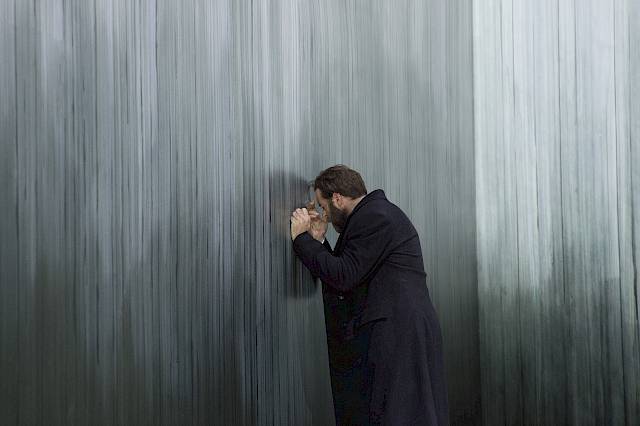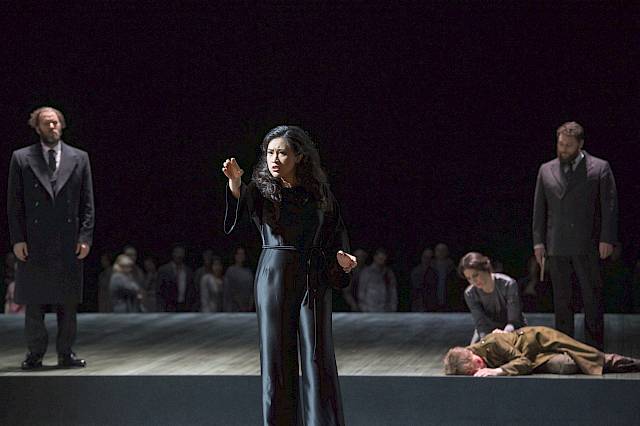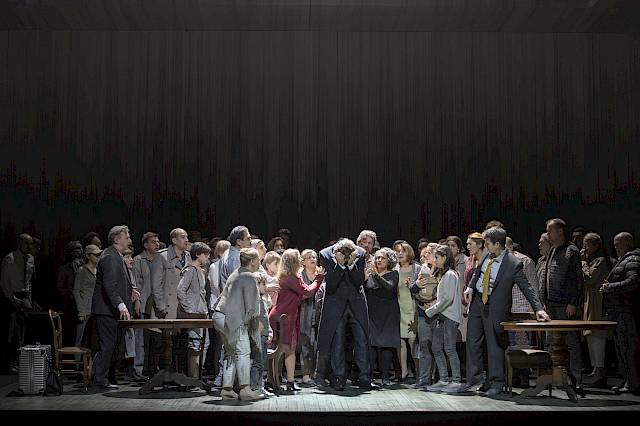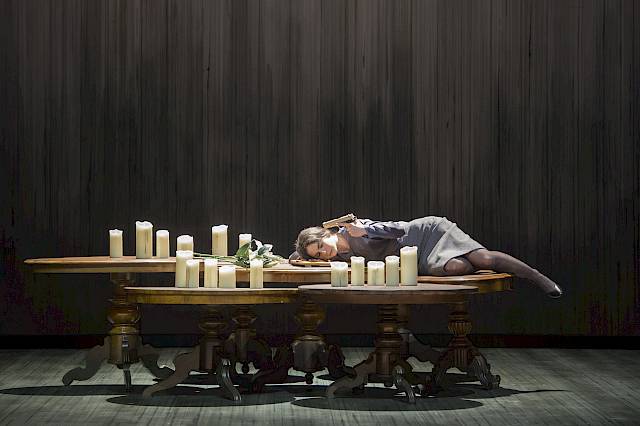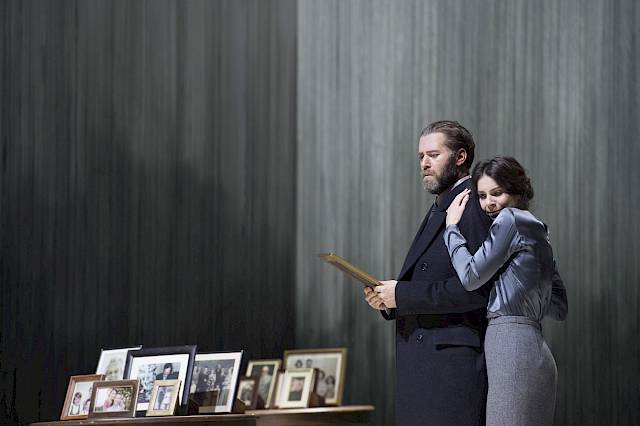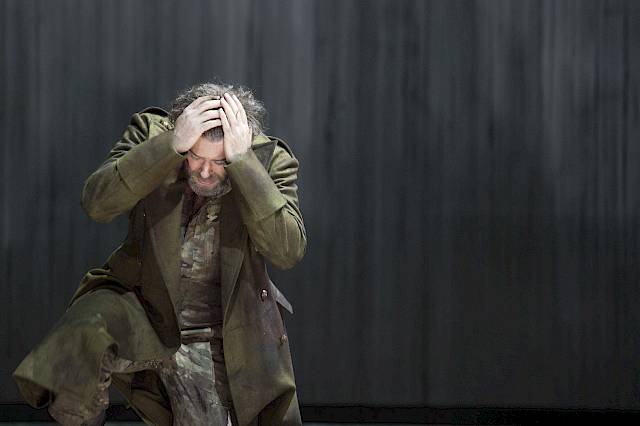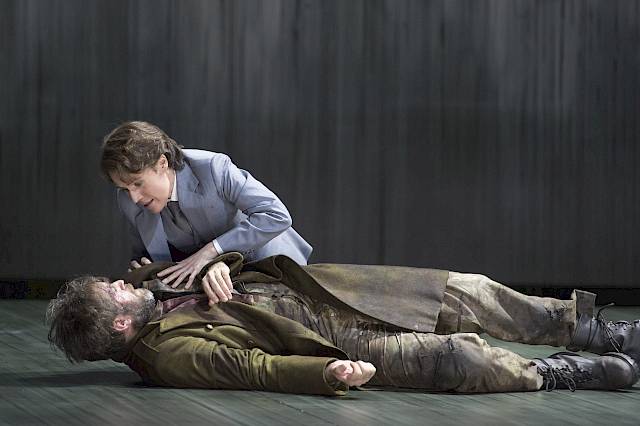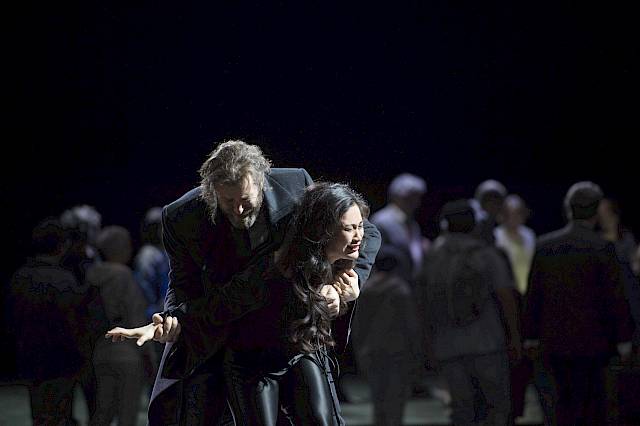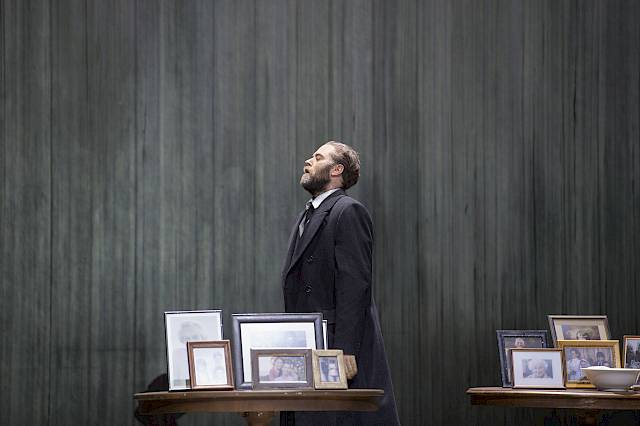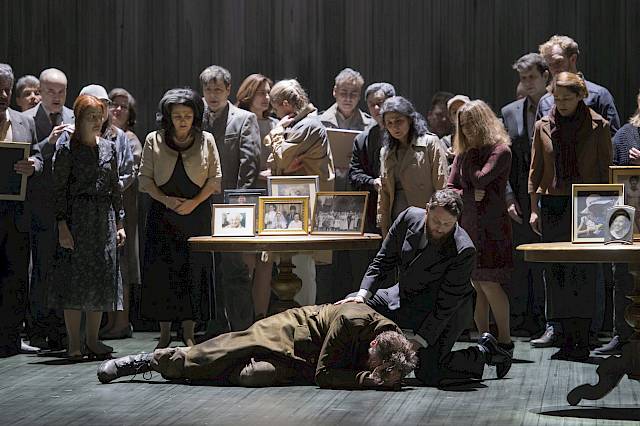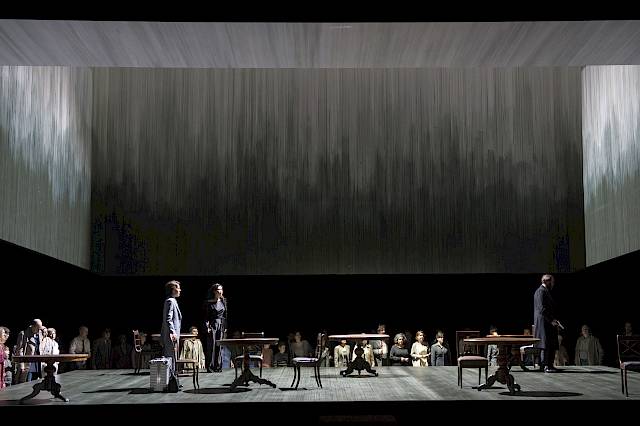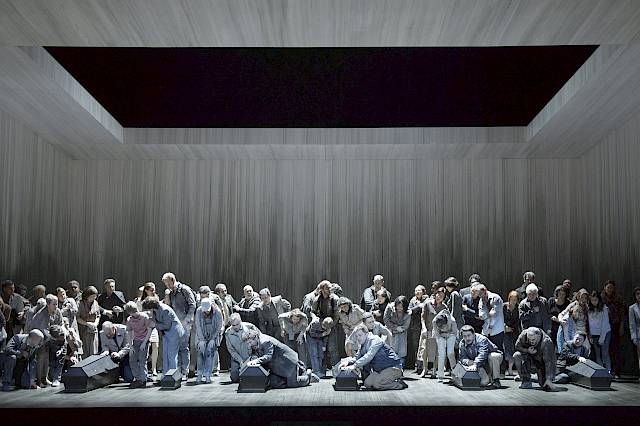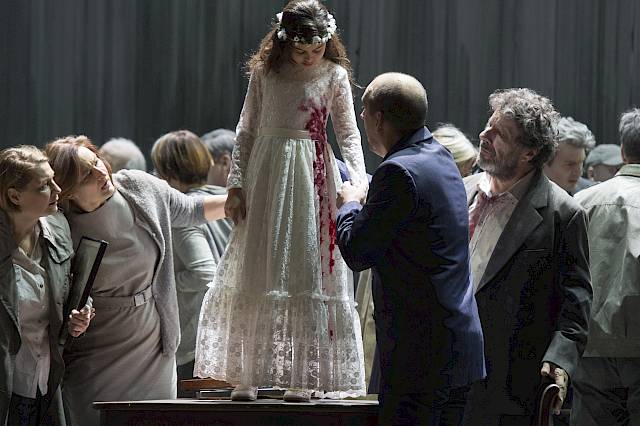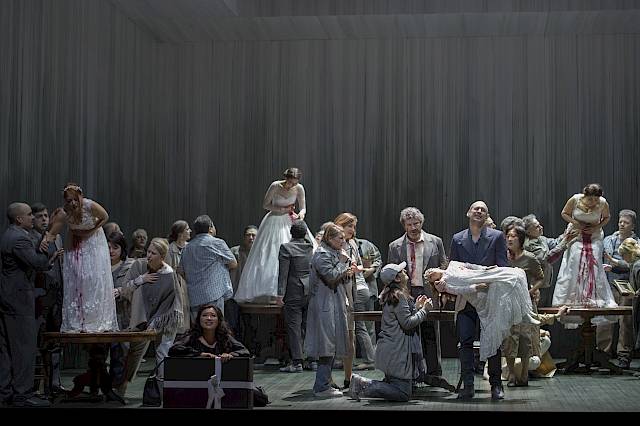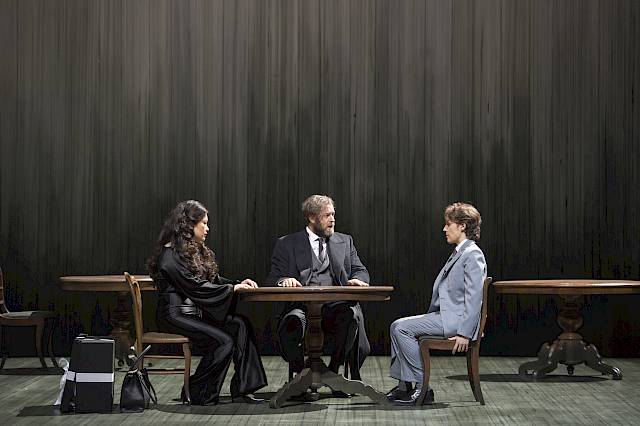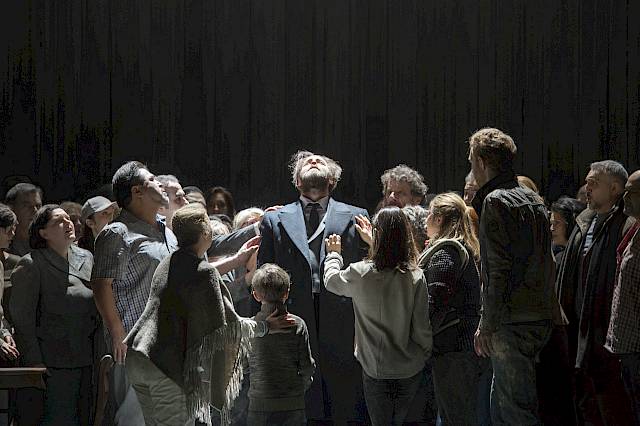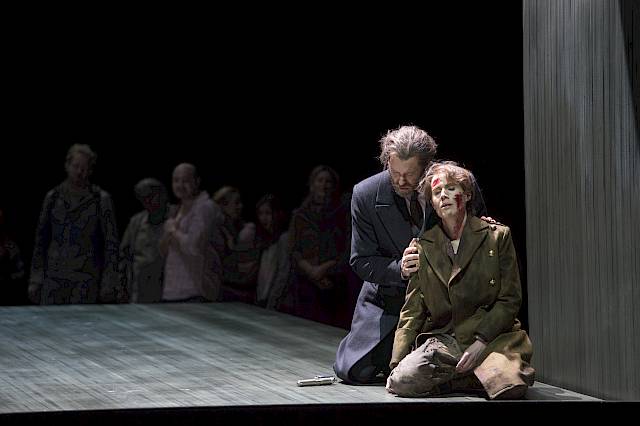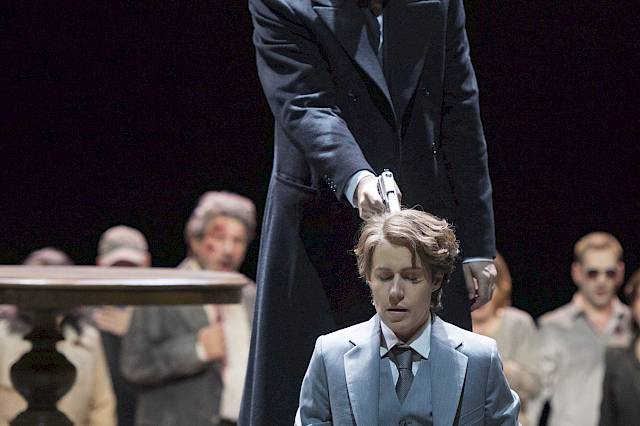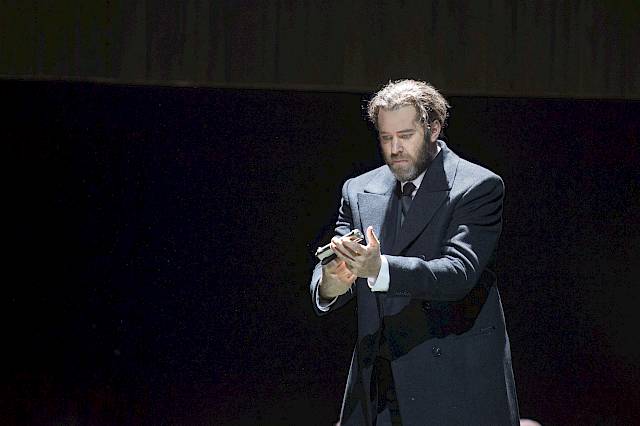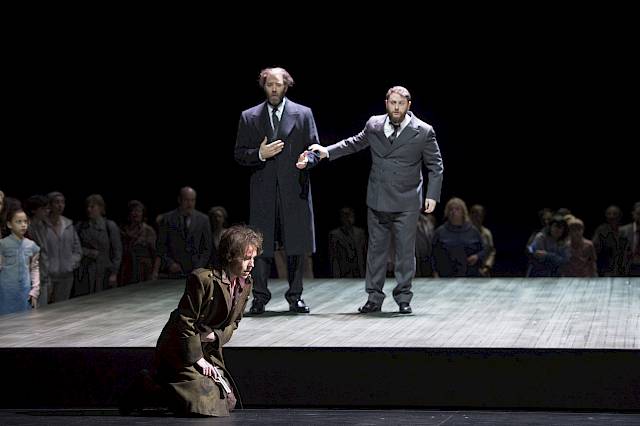Idomeneo
Dramma per musica in three acts by Wolfgang Amadeus Mozart (1756-1791)
Libretto by Giambattista Varesco
In Italian with German and English surtitles. Duration 3 H. 05 Min. incl. intermission after 1st part after approx. 1 H. 35 Min.
Good to know
Idomeneo
Synopsis
Idomeneo
Act One
Ilia, a Trojan princess and prisoner of war on the island of Crete, is in despair: she is struggling with her love for Idamante, son of Idomeneo, King of Crete. She is also deeply afflicted by the loss of her family in the Trojan War. For his part, Idamante does not believe that Ilia loves him, since his people have annihilated the Trojans. He attempts to gain her favour by releasing the Trojan prisoners. Electra, who fled from Argos to Crete after her brother Orestes killed their mother, is appalled that the Trojans have been released. She too is in love with Idamante. When Idomeneo’s confidant Arbace brings the news that his master has perished in a storm at sea on the crossing to Crete, a distraught Idamante rushes to the beach. Electra fears that Idamante, as the new king, will now make Ilia his wife, and gives her wounded feelings free rein. However, Idomeneo has survived the storm and, after ten years of absence and severely traumatised by the war, once again finds himself in his homeland. He is persecuted by the oath he swore to Neptune, god of the sea, while in the greatest distress: If he was saved, he would sacrifice the first man he encountered to the deity. Idomeneo senses that the ghost of the murdered man would accuse him day and night. At that moment, the victim appears – it is Idamante, his own son. Initially overjoyed to have his missing father once more, Idamante suffers the painful experience of being brusquely rejected by his father. The Cretan populace celebrates the hero’s return.
Act Two
Idomeneo explains to Arbace his terrible obligation to kill his own son. To escape his dilemma, he intends to send Idamante away to Argos with Electra. Ilia, who is gradually overcoming her grief, asks Idomeneo to replace her lost father. Idomeneo recognises Ilia’s love for Idamante behind the request, as well as the fact that their love is mutual. In despair, he finds himself subject to an inner tempest of emotions far more violent than the storm at sea. Electra dreams of returning home and sharing her life with Idamante. Idomeneo urges Electra and Idamante to leave. However, their departure is thwarted: a storm rises, and a monster takes possession of the land. Violence and terror are rife. Idomeneo confesses his guilt and offers himself as a sacrifice to the god of the sea.
Act Three
Ilia laments her fate. Due to his unfulfilled love for Ilia and his father’s severity, Idamante intends to seek death in combat with the monster. Alarmed by his determination, Ilia confesses her love to him. The couple is caught unawares by Electra and Idomeneo. Once again abruptly rejected by his father, Idamante resolves to retreat into solitude and die. Arbace passes on to Idomeneo the people’s demands for peace. Idomeneo now publicly acknowledges that he must kill his own son. Idamante returns, exhausted. He has killed the monster and is willing to offer himself voluntarily to his father for the sacrifice, which Idomeneo is now determined to make. However, Ilia steps in, offering herself in Idamante’s place. A voice is immediately heard, announcing that Idomeneo should no longer be king. Idamante should become the new ruler and Ilia his consort. In Idamante, Idomeneo recognises his alter ego. Overwhelmed by feelings of humiliation, Electra intends to follow her brother Orestes to the Underworld. The people celebrate life.


